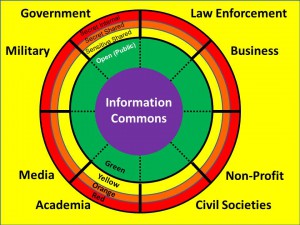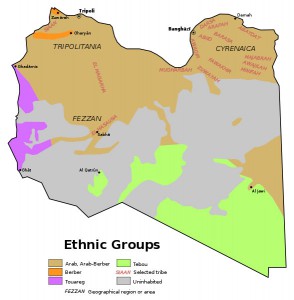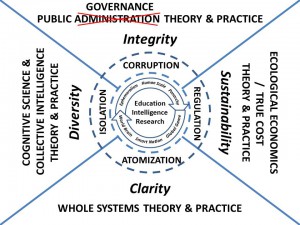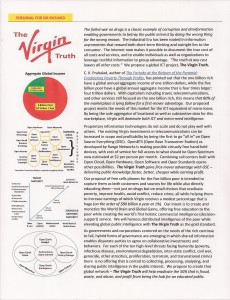
Owl: Aaron Swartz — Prosecutors as Persecutors — Call to End All Donations to MIT — Burn MIT to the Ground, Metaphorically Speaking
07 Other Atrocities, 09 Justice, 11 Society, Academia, Commerce, Corruption, Crowd-Sourcing, Culture, Governance, Government, Knowledge, Law Enforcement, Media
Following up on the excellent post, Mongoose: Moti Nissani on Who Killed Aaron Swartz? it is now clear MIT refuses to cut any kind of deal, and the prosecutor went nuclear on what should have been a matchbook case. Now it emerges that the prosecutor going after Swartz went after another young man involved with computers who also died, allegedly from suicide, as supposedly did Swartz. “Prosecutor Stephen Heymann has been blamed for contributing to Swartz's suicide. Back in 2008, young hacker Jonathan James killed himself in the midst of a federal investigation led by the same prosecutor. James, the first juvenile put into confinement for a federal cybercrime case, was found dead two weeks after the Secret Service raided his house as part of its investigation of the TJX hacker case led by Heymann — the largest personal identity hack in history. He was thought to be “JJ,” the unindicted co-conspirator named in the criminal complaints filed with the US District Court in Massachusetts. In his suicide note, James wrote that he was killing himself in response to the federal investigation and their attempts to tie him to a crime which he did not commit.”
So one scenario is, as mentioned by Nissani, that the government directly killed – by hanging – Swartz. But in light of this newly emergent pattern, perhaps it indicates another scenario equally sinister but more simple: that Heymann mercilessly and severely harasses his victims to death by suicide. No need to send in wet boys (a DOJ slang term for on-the-payroll DOJ killers specifically) to murder someone, just drive them insane or to self-destruction. The outcome is the same as someone putting a bullet in one's head. It's about prosecuting by persecuting. A capsule definition of what comprises much of what is called the US legal system. See this link for more:
Internet Activist's Prosecutor Linked To Another Hacker's Death
It seems like outrage at the official US government persecution-leading-to death of Aaron Swartz is picking up steam. Check out this excellent list of recent links from the Naked Capitalism site:
Berners-Lee Calls Prosecution of Aaron Swartz ‘Travesty’ Bloomberg. Notice how slanted the story is. Calls what he did “hacking” when was not, see here.
How the Legal System Failed Aaron Swartz—And Us New Yorker
TOWARDS LEARNING FROM LOSING AARON SWARTZ Center for Internet and Society
‘Aaron was killed by the government’ – Robert Swartz on his son’s death RT
On humanity, a big failure in Aaron Swartz case Boston Globe. Makes it clear MIT refused to cut a deal. I hope tech donors never give a dime to MIT again.
NIGHTWATCH: Libya Reverting to Pre-Italian Tribal Triad
Governance, Politics
Libya: Libya's ruling national congress ordered the temporary closure of its borders with four of its neighbors on 16 December and declared its desert south a closed military zone.
The national assembly ordered that land borders with Chad, Niger, Sudan and Algeria be temporarily closed pending new regulations. It also said the provinces of Ghadames, Ghat, Obari, al-Shati, Sabha, Murzuq and Kufra are considered closed military zones.
Comment: The rise of southern tribal opposition to the new government and increased jihadist tendencies are responsible for the new order. The government has no capabilities to enforce its mandate in the south, making this order a statement that the government recognizes it has a problem.
Modern Libya is an artificial creation of the Italians. It appears to be devolving into its ancient regions of Tripolitania, Cyrenaica and Fezzan – in the south.
Continue reading “NIGHTWATCH: Libya Reverting to Pre-Italian Tribal Triad”
Event: 31 May – 2 June 2013 San Francisco Governance and Utopian Imagination (Public Administration Theory Network)
Economics/True Cost, Governance, Politics
2013 Conference “Governance and the Utopian Imagination”
Though the term is most famously associated with Thomas More's Utopia (1516), the basic idea of imagining another, better world (eutopia, good place) that does not yet exist on Earth (utopia, no-place) is one with a long, rich history that touches perhaps all human societies and cultures. However over the course of the twentieth century, in some discourses utopianism and the utopian imagination came to be viewed as dangerous. They became associated not with dreams of a better world but with the most nightmarish, violent aspects of modernity and state-led efforts to make those dreams an actuality. In the wake of the collapse of state socialist projects and the rise in recent decades of what some call “market utopianism,” there has been a resurgence of interest and debate in the social sciences and humanities regarding utopian thought and the practical construction of “real utopias.” These efforts reconsider the role of utopian thought in human life in light of this history and seek workable alternatives to contemporary political, social, and economic governance.
This year's meeting of the Public Administration Theory Network seeks to re-engage “the utopian imagination” and invites contributions from across the social sciences, humanities, and fields of professional and community practice that critically explore the intersection of contemporary governance, utopia, and the human impulse to make better worlds.
I. Theoretical re-engagements with “utopia” that explore questions, such as:
–Can “utopia” be productively rehabilitated in light of history and critique? Or is it inextricably linked with Western hegemony and violence?
–How can or should traditions from the Global South, indigenous and native peoples, Asia, and elsewhere inform a re-examination of “Western” theories and experiences of utopianism?
–What role can or should government and public administration play in today's utopian imaginings?
II. Historical and/or genealogical analyses that explore utopia's intersection with: democracy, capitalism, liberalism, dystopia, colonialism, human nature, race, gender, sexuality, (anti-)globalization, innovation.
III. Critical explorations of contemporary sources of “utopian” and “dystopian” narrative and imagery and their relationship to matters of governance, such as: technology, management, environmentalism, economics, film, literature, philosophy, religion.
IV. Theoretically informed case studies that analyze the practical and institutional possibilities of moving from “utopian imagination” to building and governing “real utopias” and “intentional communities.”
RFP Flyer-short.pdf (99k) RFP Flyer-long.pdf (137k)
ACCEPTED FOR PRESENTATION: 2013 Public Governance in the 21st Century: New Rules, Hybrid Forms, One Constant – The Public
2012 Steele for Branson: The Virgin Truth 2.6
Access, BTS (Base Transciever Station), Crowd-Sourcing, Culture, Economics/True Cost, Education, Geospatial, Governance, Hardware, Innovation, Knowledge, Money, P2P / Panarchy, Politics, Resilience, Software, Sources (Info/Intel), Spectrum, Transparency
DOCUMENT (1 Page): Virgin Truth 2.6R

